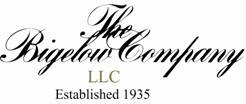
"Irrational Pessimism" *** Have you noticed that the "nouveau successful" who partied their way through the 1990's patting themselves on the back for their superior investment (or management) insights were the first ones to run for cover in (what strikes us as) a highly predicted cyclical business slowdown? Didn't CEO's know that after an arguably ten year boom a little rain was gonna fall? And what is the real nature of the business slowdown we are referring to? It has not produced sustained negative growth rates in any broad measurement (e.g. Gross Domestic Product). It hasn't resulted in any increase in inflation or in interest rates. It hasn't precipitated any decrease in productivity-in fact non-farm productivity is at an all time high. Unlike the equities markets which have had a broad correction, the business downturn seems to be very sector specific. There is no question that there is significant overcapacity in a broad spectrum of manufacturing and service industries. Enterprises of all sizes will have to adjust to deal with this reality. Increased investment in technology over the past ten years and the resultant increase in productivity has only served in the short term to exacerbate the overcapacity issue. It is certain that this overcapacity, coupled with increasing productivity, will yield gradually rising unemployment over the next decade with its associated fiscal and political challenges. The widespread overcapacity phenomenon means that owner-managers must differentiate on their non-manufacturing competitive advantages. In these situations, price is a given. What about using this slowdown to address those non-price issues that were heretofore overlooked as a distraction? Examples include forming that Advisory Board of Directors, that new recruiting and training program, creating those new operating metrics? "How will we go to market, in what channel, (and most importantly) at what speed?" New opportunities may not be manufacturing or capital intensive, but they will be knowledge and insight intensive. Superior owner-managers use the sense of urgency of slowing growth rates to make these needed structural changes in strategy and implementation that seemed a lower priority in different times. Like all thinking people, we have some worries. But run for cover? Hardly. The facts do not justify such irrational pessimism. It's exactly when the crowd is running for cover that owner-managers who allocate resources to differentiation will emerge on the other side of the slowdown with much higher equity values and more valuable enterprises for all stakeholders. © The Bigelow Company LLC The Bigelow Company LLC is best known as the private investment bank focused on owner-managers of larger successful entrepreneurial companies in North America. We advise our clients on value creation strategies, and then attain the highest value for their stockholders through recapitalization or divestiture. Peter R. Worrell |
|

